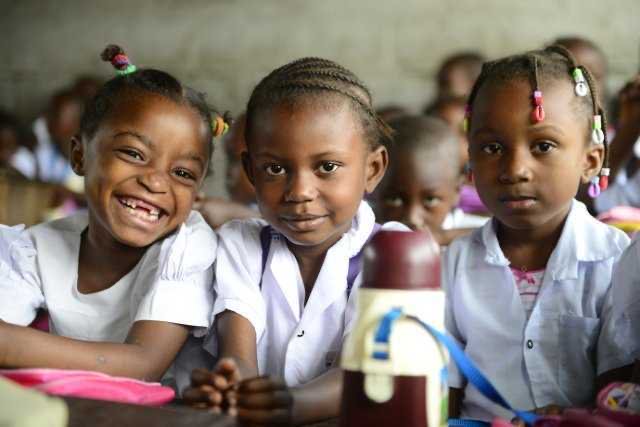Safeguarding the Girl Child: The role of parents in ensuring safety, by Mshelia Lawi Shehu
The responsibility of protecting children, especially the girl child, rests heavily on parents. In a society where threats to their safety are becoming increasingly common, parents cannot afford to be passive. Mothers, in particular, play a crucial role because of their closeness to their daughters and their ability to nurture openness in communication.
One of the first steps in safeguarding the girl child is building trust. Parents must create an environment where their daughters feel free to speak openly without fear of judgment. A child who knows she will be listened to is more likely to share troubling experiences before they escalate into dangerous situations.
Parents should also be conscious of the company their daughters keep. Asking questions about the friends they play with, the activities they engage in, and the places they visit can provide insight into potential risks. These conversations should be gentle yet firm, making it clear that their safety is a top priority.
It is equally important for parents to know the households their daughters enter. Every environment is not safe, and sometimes harm is inflicted by people who are close to the family. Being selective about where daughters are allowed to go is not overprotection; it is a necessary precaution in a society where abuse often happens in familiar spaces.
Personal experiences highlight the importance of parental vigilance. Many mothers recall moments when quick intervention spared them from danger. A child left alone in an unsafe environment, even for a short while, can easily fall victim to abuse. Parental presence, strict supervision, and firm boundaries remain critical safeguards.
READ ALSO: Ending the tragedy of road accidents in Nigeria, by Solomon Dilibe Obinna
Parents must also instil in their daughters a strong sense of body awareness and self-respect. From an early age, they should be taught that their bodies are private and should not be exposed to just anyone. Explaining who is allowed to see them in vulnerable states and why creates clarity and sets boundaries that protect them from exploitation.
It is not enough to merely issue warnings. Parents should explain in age-appropriate ways why certain behaviours, such as sitting on laps, entering secluded places, or keeping secrets about touch, are dangerous. Knowledge empowers children to recognise danger and avoid it even when parents are not around.
Discipline, too, plays a role in safeguarding the girl child. Setting clear rules about where they can go, how long they can stay, and who they can be with helps reinforce safety practices. Though children may sometimes see these restrictions as harsh, they ultimately provide protection against unseen threats.
Mothers, sisters, and other female relatives have a duty to reinforce these lessons. Explaining that modesty is not just cultural but also protective helps young girls understand why guarding their bodies is essential. Normalising conversations about safety and boundaries also reduces the stigma around sensitive discussions.
Fathers, too, have a role to play. Their involvement in their daughters’ lives communicates love and protection. When fathers show interest in their daughters’ daily activities, ask questions, and set protective boundaries, they contribute to building confidence and a sense of security.
READ ALSO: How to Drink from a Poisoned Cup: Harold Smith story and the Nigerian story, by Azu Ishiekwene
Parents must also remain attentive to changes in behaviour. A once cheerful child who suddenly becomes withdrawn, fearful, or secretive may be experiencing something troubling. Early detection of such signs, followed by calm and supportive conversations, can reveal hidden dangers before they worsen.
Beyond the home, parents should advocate for safer communities. They can collaborate with schools, religious institutions, and community leaders to ensure environments where girls spend time are secure. This shared responsibility creates a network of protection around the child.
Technology has added another layer of concern. With internet access and smartphones, children are exposed to strangers in ways parents may not immediately notice. Monitoring online activity, setting boundaries for internet use, and educating children about online predators are modern necessities in safeguarding the girl child.
Protecting daughters also requires balancing strictness with affection. Parents must ensure that their rules do not create fear or rebellion but instead foster understanding. When children see safety measures as acts of love rather than control, they are more likely to comply willingly.
READ ALSO: Building inclusive AI literacy for Nigeria’s digital future, by Esther James Killi
In a nutshell, safeguarding the girl child is not just about preventing harm in the present but also about preparing her for the future. By equipping her with awareness, confidence, and strong values, parents give her the tools to navigate life safely and wisely. In doing so, they fulfil one of their most sacred duties: raising a generation of girls who are both protected and empowered.
Mshelia Lawi Shehu is a student of Mass Communication at the Muhammadu Buhari University of Maiduguri (formerly University of Maiduguri), Borno State.
Follow the Neptune Prime channel on WhatsApp:
Do you have breaking news, interview request, opinion, suggestion, or want your event covered? Email us at neptuneprime2233@gmail.com





